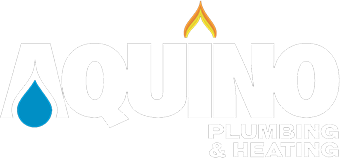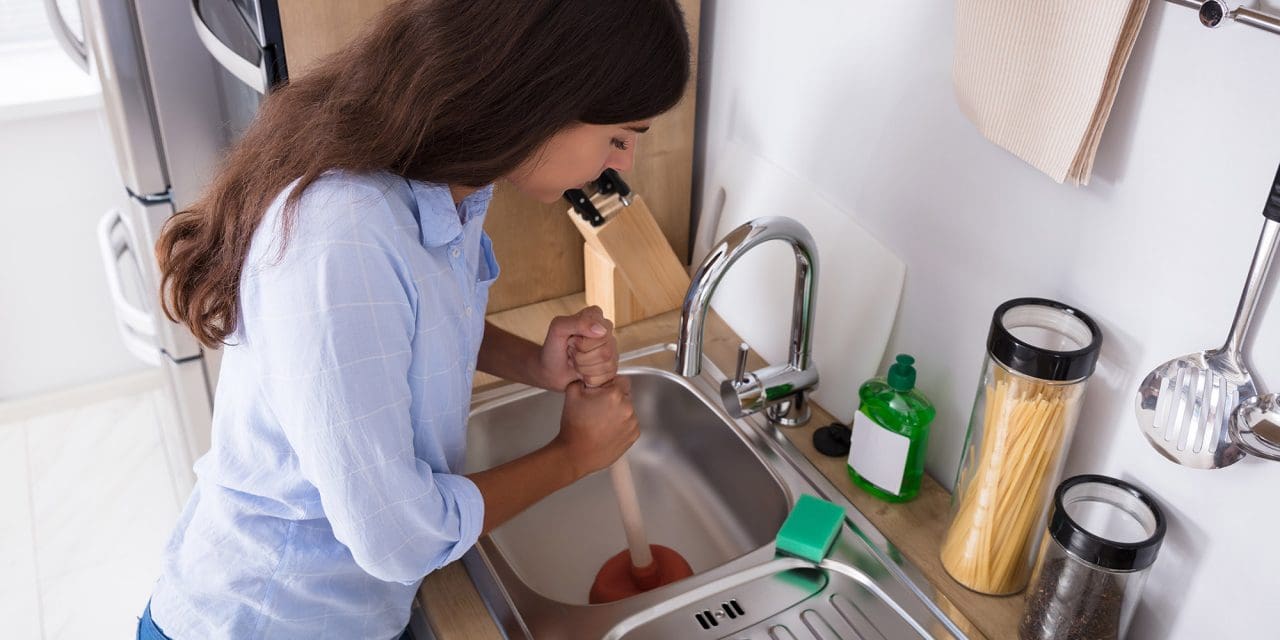At one time or another, we have all relied upon a drain cleaner, such as Drano or other similar products. Such products are advertised as a quick fix. But if a drain-cleaning liquid is not working in the way you intended it to, it’s time to get concerned. There can be something far more serious at stake that can threaten your home or business.
What is Drano Anyway?
You may know drainer cleaners like Drano® as a miracle worker that can unclog your sink, shower, and tub. In some cases, it can. In others, it can’t and ends up doing more damage than a simple clog. Drano contains harsh chemicals, including sodium hydroxide, sodium nitrate, sodium chloride, and even aluminum shards to attack clogs. The manufacturer claims it can “dissolve hair, soap scum, and gunk.” The product is so popular because it is so easy to use. You pour a sufficient amount into the clogged drain and let it sit for 15 minutes. You then flush the drain with hot water. For tougher clogs, the manufacturer suggests letting the product sit for 30 minutes before flushing.
A few other facts worth noting:
- You should not use Drano® or a similar product to unclog a toilet.
- Do not use Drano on plastic or metal piping without checking the label first.
- Avoid drain de-cloggers that contain any acid, such as hydrochloric or sulfuric acid, as they can harm pipes of all kinds.
- Be wary of using these products in your garbage disposal.
When Drain Cleaner is not Working, It Can Harm Your Plumbing
Drain cleaners like Drano® works by using several chemical reactions at the same time. Its main ingredient is lye, a chemical that decomposes many types of organic matter, such as grease or hair. The lye is mixed with tiny aluminum shards to start a reaction that creates heat at nearly boiling temperatures to speed up the decomposition process.
It can also be harmful in one of the following ways:
- When Drano® does not work, the product might be caught within the clog. The material that is in the drain can melt and become a solid object. In this case, a professional plumber may not be able to remove it. The pipes themselves would have to be removed and replaced, which can be costly and time-consuming.
- Drano® may remain in your pipe until the clog dissolves. It will then continue to generate heat. These constant, high temperatures can damage commonly used PVC pipes by softening them. They may eventually rupture or prematurely age. Older pipes with existing corrosion can be damaged by products that use these chemicals. Drano® can even eat away at the industrial glue which holds your pipes together.
- Toxicity is also a concern. You should not come into direct contact with Drano® at any time. This suggestion is especially true for your eyes. Another reason Drano can be harmful is in the attempt to plunge after using Drano®. Plungers are designed as a tool to move clogs upward and out of the drain. Clogs that contain Drano can splash up and into your face when plunged afterward.
Alternatives to Drano
While we’re at it, a plunger is a better idea than drain cleaner. It uses no harsh chemicals of any kind. The plunger creates a seal around the drain to push and pull until the clog removes. However, a plunger can also be messy and many homeowners or business owners are reluctant to perform the task themselves.
A simple snake or auger may also be used instead of a drain cleaner. Plumbing snakes are especially useful for hair clogs, and many of them have teeth that will trap hair and pull it out of the drain. And while you may purchase different types of plumbing snakes at your local hardware store, it isn’t always a good idea to try to use them on your own. You could end up damaging your fixtures if you don’t have a lot of practice. Damage is an increased possibility when trying to unclog a toilet, as the snake has to bend in the toilet without scraping the porcelain.
Our area of home and business coverage includes all of northern & central New Jersey and Eastern PA – including Hunterdon County, Warren County, Somerset County, and Morris County. Our location is convenient to Clinton, Flemington, Readington, Tewksbury, Whitehouse, Washington, Hackettstown, Phillipsburg, Bridgewater, Somerville, Branchburg, Long Valley, and Chester. Contact us if you have clogged drain and want to handle it correctly.



